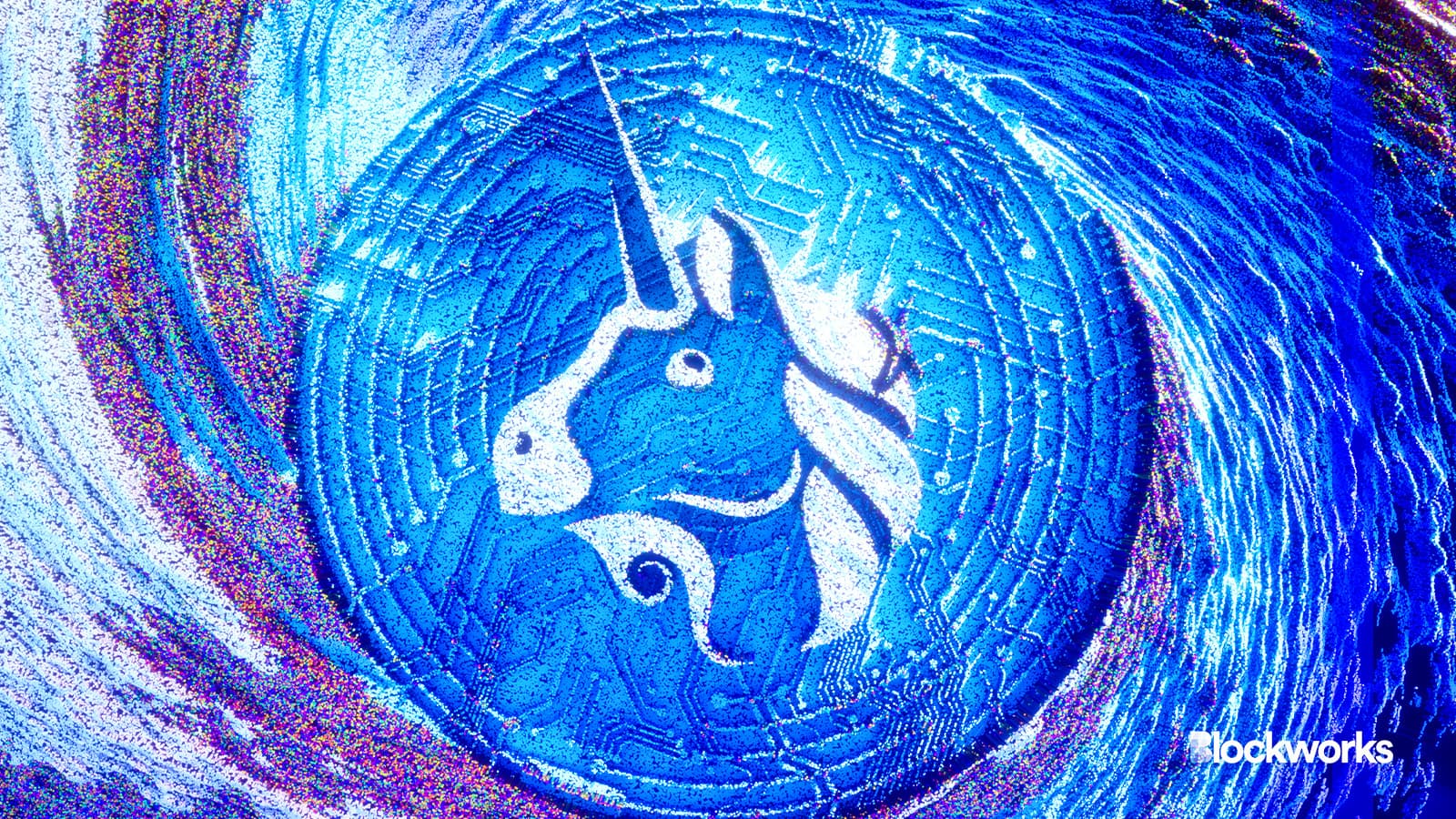- Hashed Out
- Posts
- Hashed Out V4: The Smart Contracts & DApps 101 Edition
Hashed Out V4: The Smart Contracts & DApps 101 Edition
Hashed Out V4: The Smart Contracts & DApps 101 Edition

Welcome to the fourth issue of Hashed Out, a bimonthly newsletter from Argot (www.argotagency.io) that serves as a guide for those looking to learn the basics of the web3 space. In time, our vision is to create a forum where web3 enthusiasts and newcomers can come together to explore the new digital world. Hashed Out seeks to provide you with all the resources and insights you need to go from web3 virgin to web3 virtuoso.
As the sherpa for your expedition into the new digital great beyond, we promise to make the complicated feel simpler, connect you to the most important data and resources from the builders, researchers, and creators that are shaping web3, and respond to your needs as we grow together.
In This Issue- Table of Contents
Smart Contracts 101: A Comprehensive Introduction to Blockchain-Based Agreements
Navigating the World of Decentralized Applications (DApps): An Introductory Guide
Case Study: Uniswap and Audius- Revolutionizing Their Industries Trough Smart Contracts and DApps
Editorial: The Economic Implications of Decentralized Applications (DApps)
Ok Hashers, are you ready to get started learning smart contracts and DApps? I know I am! Let’s go!
Understanding Smart Contracts: A Comprehensive Introduction

Estimated Read Time: 7 minutes
Introduction
Imagine a world where agreements are not just written on paper but are made with lines of computer code. Contracts that not only define rules and penalties in a legal document but automatically enforce those obligations without any human interference, reducing disputes in the process. Just a concept with potential in the 1990s, smart contracts have transcended their theoretical roots to become a key player in today’s blockchain technology landscape.
So let’s dive deeper into smart contracts, exploring the key features, types, applications, and what the future might hold.

Estimated Read Time: 4 minutes
Introduction
What would many of us do today without some of the apps on our smartphones that we have come to rely on? Applications, or apps, are the interactive face of the digital world that connects us to the technology that lies underneath. As we make the transition from web2 to web3, applications will still be a central part of our digital experience. Of course, like most things in web3, there will be some important differences.
Case Study: Uniswap and Audius - Revolutionizing Their Industries Through Smart Contracts and DApps

Estimated Read Time: 4 Minutes
Introduction
This week our case study looks at how two popular web3 Daps, Audius and Uniswap, are using smart contracts and decentralized application technology to disrupt the music and asset exchange markets.
Editorial: The Economic Implications of Decentralized Applications (DApps)

Estimated Read Time: 7 minutes
Introduction
In the fast-evolving landscape of blockchain technology, Decentralized Applications (DApps) have emerged as a groundbreaking development. Unlike traditional apps, which operate on centralized servers, DApps run on a peer-to-peer blockchain network, offering new levels of autonomy and transparency. This shift not only influences technological frameworks but also has profound economic implications that could reshape global markets.

Connections- Curated Links for the Curious
Understanding Smart Contracts
Investopedia is always a good place for introductory information on topics. Their article on smart contracts is short, but really hits the key basics.
Motley Fool provides a good intro to smart contracts in their article “What are Smart Contracts?”
Deltec Bank has a great article on Ethereum Smart Contracts, with helpful infographics and some key takeaways.
Understanding DApps
The DApp List maintains a database of web3 projects, including DApps, sorted into use categories or by hosting blockchain.
DappRadar, similar to in many ways to the DApp List, functions like the App Store on your smartphone. It has a great blog, rankings of different DApp projects, and much more.
Smart Contracts & DApps in Different Industries
This is a bit dated, from 2016, but the Chamber of Digital Commerce and law firm Perkins Coie produced a report on decentralized applications that has a forward from Nick Szabo (the godfather of dapp technology).
Tech development firm synodus has a list of 14 smart contracts use cases along with infographics that make the explanations more simple. Industries include: finance, insurance, NFTs, healthcare, property management, supply chain, entertainment, voting and more.
Future Trends in Smart Contracts & DApps
Medium writer Dhaval soni takes a look a potential trends in the future of smart contracts in this article.
For a more robust look into the potential future of smart contracts the futurist Thomas Frey’s article “Unleashing the Future: Extreme Scenarios of How Smart Contracts Will Alter the Course of History,” gives ‘20 groundbreaking’ smart contract applications.
Did you miss out on the previous issues of Hashed Out? See them all here!


The Wrap
For those requiring a TLDR or just want a fast recap (the gist of the newsletter in 1,000 words) here it is:
Understanding Smart Contracts & DApps: The “Short and Dirty” Version
Historical Background to Smart Contracts
The concept of smart contracts was first proposed by cryptographer Nick Szabo in 1994, long before blockchain and Bitcoin became household terms.
Smart contracts remained a theoretical construct until the creation of blockchain technology. The launch of Bitcoin in 2009 introduced the first widespread use of blockchain, however Bitcoin's scripting language did not support the complex implementations envisioned for smart contracts.
The real breakthrough came with Ethereum, launched in 2015 by Vitalik Buterin. Ethereum allowed developers to write more complex smart contracts that could do far more than just send and receive cryptocurrency. Ethereum's innovation was to use blockchain not just as a way to record transactions but as a platform for running decentralized applications (DApps) through smart contracts.
What Are Smart Contracts?
Smart contracts are self-executing contracts where the terms of the agreement between parties are written directly into code. They run on blockchain networks, such as Ethereum, where each transaction is recorded on a decentralized ledger, visible to all but unchangeable once executed. Unlike traditional contracts, there's no need for a middleman like a lawyer or a notary. The blockchain network manages execution, and a smart contract automatically enforces the contract terms.
Key Characteristics of Smart Contracts:
Autonomy: Once deployed, they operate without further human intervention.
Trust: The decentralized, transparent nature of blockchains makes smart contracts trustworthy.
Backup: Data is duplicated many times over across the blockchain, making it nearly impossible to lose.
Safety: Strong encryption secures transactions and prevents tampering.
Speed: Processes that typically take days can be completed in seconds.
Efficiency: Eliminating intermediaries saves time and resources.
Savings: Less manual processing means fewer costs and lower fees.
How Do Smart Contracts Work?
Creating a Smart Contract involves:
Writing the Code
Testing the Contract
Deploying on a Blockchain
Execution of Smart Contracts:
Trigger Conditions: When a predefined condition is met, the contract is set in motion for verification (consensus).
Consensus: Nodes in the blockchain must agree that the condition has been met.
Execution: Consensus of the trigger results in the automatic implementation of the contract.
Example: A simple contract might automatically transfer payment from a buyer’s to a seller’s account once a delivery confirmation (via consensus process) is received.
Use Cases of Smart Contracts
The potential applications for smart contracts are vast and varied:
Financial Services: Automate payments, streamline insurance claims, and manage derivatives.
Supply Chain Management: Track products from production to delivery, ensuring compliance and quality.
Healthcare: Securely manage patient records and ensure medication adherence.
Real Estate: Simplify property transactions, from rental agreements to purchasing deeds.
Governance: Enhance transparency and trust in voting mechanisms and public records.
Benefits of Smart Contracts
The digital nature of smart contracts offers several advantages over traditional contracts:
Trust and Transparency
Speed and Efficiency
Cost-effectiveness
Accuracy
Security
Decentralization
Challenges and Limitations of Smart Contracts
While promising, smart contracts face significant hurdles:
Technical Challenges: Bugs and vulnerabilities in code can lead to problematic outcomes. With time, these issues are being solved or minimized.
Scalability Issues: High demand can lead to network congestion, slowing down transactions.
Legal and Regulatory Challenges: Current laws may not fully recognize or accommodate smart contracts.
Interoperability: Difficulties in integrating with existing legal and technological frameworks.
Decentralized Applications (dApps)
What Are dApps?
A decentralized application (dApp) is a type of application that runs on a blockchain or peer-to-peer network of computers, instead of being hosted on centralized servers. They are open-source, operate autonomously, and the majority of them have no central point of control.
Traditional vs. Decentralized Apps:
Traditional Apps: Controlled by single entities. Data is stored on centralized servers which can be a single point of failure.
Decentralized Apps: Run on a blockchain network which distributes the data across many nodes, making them immune to a single point of failure and often more secure.
How Do dApps Work?
The core components that make up dApps include:
User Interface (Front-End)
The “face” of the app the user sees which connects to the technical guts behind the app (blockchain & smart contracts).
Smart Contracts
Think of smart contracts as the rules of the app written in code, deployed on the blockchain. When predefined conditions are met, smart contracts execute automatically without any intermediary.
Blockchain
A tamper-proof ledger, storing the state and history of all interactions.
Example Walkthrough: Decentralized Voting System
Setup: A developer writes a smart contract for voting and deploys it on a blockchain.
Interaction: Voters connect their blockchain wallets to the dApp, select candidates, and submit their votes.
Processing: The smart contract checks eligibility, records votes, and prevents any further changes.
Results: Once voting ends, the smart contract tallies the votes and updates the app with the final results.
Current Uses of dApps
Financial Services (DeFi)
Decentralized Finance (DeFi) applications offer services from trading to loans without the need for traditional financial intermediaries. Platforms like Uniswap allow users to swap cryptocurrencies without a central authority.
Gaming and Virtual Goods
Games like "CryptoKitties" let players buy, sell, or breed digital cats using smart contracts.
Social Media
Decentralized social platforms like Steemit reward users with cryptocurrency for creating and curating content, disrupting how social media monetization traditionally works.
Art and Ownership
NFT marketplaces like OpenSea have revolutionized how art is sold and owned, enabling artists to reach global markets directly without galleries or auction houses.
Benefits of Using dApps
Censorship Resistance
User Control and Ownership
Reduced Downtime
Transparency and Trust
Challenges Facing dApps
The biggest challenges facing dApps right now are the extremely high cost of development and the fairly limited and niched user bases. Another challenge is that the quality and ease of use of the interfaces often does not meet user expectations. All of these challenges are normal early stage growing pains.
A Look Ahead
Ok, it’s about time to roll the credits! Where do we go from here? NFTs 101! In our next edition we will be covering the basics of NFTs from their use as a collectible to more practical utility-based uses.
Also coming soon is the release of The Weekly Hash, which is our weekly curation-based news and resources update to keep you on top of the fast moving world of web3.
One last call, if you haven’t already hit the subscribe button below to stay in the know. We have a lot of great stuff ready to be released and we would love for you to join our community and grow with us.
Already subscribed? Share with a friend!
I hope that you enjoyed this edition of Hashed Out. There is much more to come and your feedback is invaluable to how we will grow. If you have questions or comments drop us a line.
Ok Hashers, that’s The Wrap. Many thanks!
(Cue awesome exit music of your choice)
Dr. Scott





